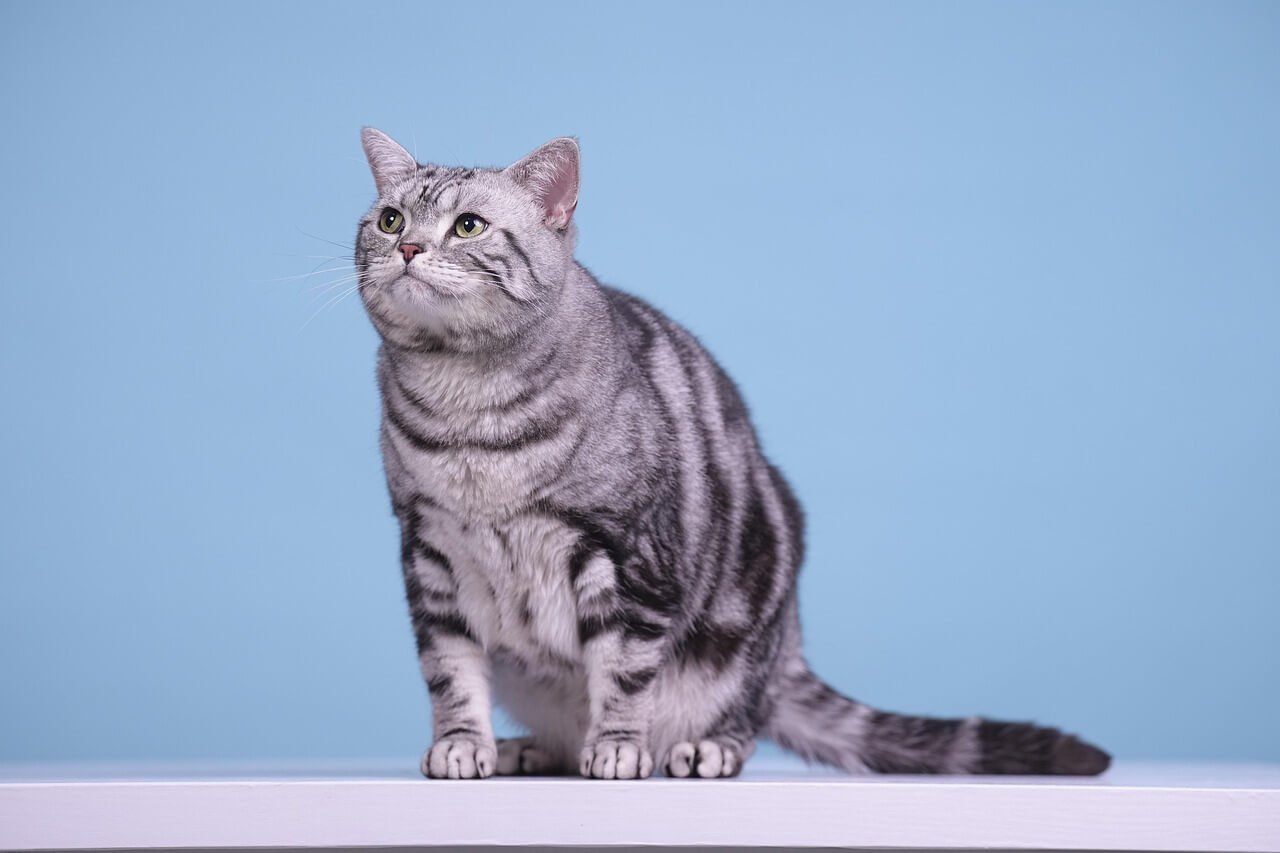Why Do Cats Meow? Decoding the Language of Your Feline Friend
Cats are mysterious creatures, and their meows often leave us wondering what they’re trying to tell us. Whether it’s a soft chirp or a loud, insistent call, cats use meowing as a way to communicate with humans and sometimes other animals. But why do cats meow, and what are they trying to say? Understanding the reasons behind this behavior can help strengthen the bond between you and your furry companion. From expressing hunger to seeking attention, meowing serves a variety of purposes. In this blog post, we’ll explore the fascinating world of cat communication, uncovering the meanings behind their meows and how you can respond effectively. Let’s dive in and learn to speak “cat”!
Common Reasons Why Cats Meow
Cats meow for a wide range of reasons, each tied to their needs, emotions, or environment. Here are some of the most common explanations for this behavior:
Seeking Attention
Cats often meow when they want your attention, whether it’s for playtime, affection, or simply to be acknowledged.Expressing Hunger
A hungry cat may meow persistently to remind you that it’s time for their next meal or snack.Greeting You
When you come home or enter a room, your cat may meow as a friendly greeting to acknowledge your presence.Requesting Access
If your cat wants to go outside or enter a specific room, they may meow to let you know they need access.Signaling Discomfort or Pain
A sudden increase in meowing could indicate that your cat is feeling unwell or experiencing discomfort.
Understanding these reasons can help you interpret your cat’s meows more accurately. By paying attention to context and tone, you can better meet your cat’s needs.
Different Types of Cat Meows and What They Mean
Not all meows are created equal—cats adjust their pitch, volume, and frequency to convey different messages. Here’s a breakdown of common meow types and their meanings:
Short, Soft Meows
These gentle meows are often used as greetings or requests for attention.Loud, Insistent Meows
A louder meow typically signals urgency, such as hunger or a strong desire for something specific.Chirps and Trills
These playful sounds are often used to express excitement or encourage interaction.Low-Pitched Meows
A deeper meow might indicate irritation, frustration, or even pain.Repetitive Meowing
Frequent meowing can suggest anxiety, boredom, or an underlying health issue that needs addressing.
By listening closely to the nuances of your cat’s meows, you can gain valuable insights into their mood and intentions. Each meow is a clue to understanding your feline friend better.
Check this guide 👉Why Is My Cat Meowing at the Door? Best 7 Expert Tips!
Check this guide 👉Why is My Cat Meowing So Much All of a Sudden
Check this guide 👉Why Is My Cat Meowing So Loudly? Best 7 Expert Behavior Tips

Reasons Cats Meow | How to Respond |
|---|---|
Seeking attention | Spend quality time playing or petting them |
Expressing hunger | Check if it’s mealtime and provide food |
Greeting you | Acknowledge them with a kind word or pat |
Requesting access | Open doors or let them outside if safe |
Signaling discomfort or pain | Consult a veterinarian to rule out illness |
How to Respond to Your Cat’s Meowing
Responding appropriately to your cat’s meows can strengthen your bond and ensure their needs are met. Here are some tips on how to handle different meowing situations:
Observe the Context
Pay attention to what’s happening around your cat when they meow—it can provide clues about their intent.Avoid Reinforcing Negative Behavior
If your cat meows excessively for treats, avoid giving in to prevent reinforcing the behavior.Provide Mental Stimulation
Bored cats may meow out of frustration, so offer toys, puzzles, or interactive play to keep them engaged.Set a Routine
Establishing regular feeding and playtimes can reduce unnecessary meowing related to anticipation.Rule Out Health Issues
If your cat’s meowing changes suddenly or becomes excessive, consult a vet to ensure there are no underlying medical problems.
By responding thoughtfully, you can address your cat’s needs while maintaining a harmonious household. Patience and consistency are key.
Fun Facts About Cat Meowing
Cats’ meows are full of surprises, and learning more about them can deepen your appreciation for these vocal felines. Here are some fun facts about cat meowing:
Kittens Meow More Than Adult Cats
Young kittens rely heavily on meowing to communicate with their mother, but adult cats rarely meow at each other.Cats Tailor Their Meows to Humans
Research shows that cats adjust their meows specifically to get a response from their human companions.Each Cat Has a Unique Meow
Just like fingerprints, every cat’s meow is slightly different, making it distinct to their personality.Meowing Can Be Learned Behavior
Some cats learn that meowing gets them what they want, leading to more frequent vocalizations over time.Silent Meows Exist
Some cats perform “silent meows,” where they open their mouths but no sound comes out—it’s believed to be a form of exaggerated communication.
These quirky facts highlight the complexity and charm of cat meowing. It’s just one of the many ways our feline friends keep us entertained and intrigued.
Misconceptions About Cat Meowing
There are several misconceptions about why cats meow and what their vocalizations mean. Clearing up these misunderstandings can help you better interpret your cat’s behavior. Here are some common myths and the truth behind them:
Myth: Cats meow to communicate with other cats.
In reality, adult cats rarely meow at each other—they typically reserve this behavior for humans.Myth: All meowing is attention-seeking.
While some meows are requests for attention, others may signal discomfort, hunger, or even excitement.Myth: A quiet cat is always a happy cat.
Some cats naturally meow less, but silence doesn’t always indicate contentment—it could also mask health issues.Myth: Excessive meowing is just a phase.
Persistent or sudden changes in meowing patterns often indicate underlying problems that need addressing.Myth: Cats meow because they’re spoiled.
Cats meow for specific reasons, not because they’re “manipulative” or overly pampered.
By dispelling these myths, we can approach our cats’ meowing with greater understanding and empathy. Every meow has a purpose, and it’s up to us to listen carefully.
Tips for Reducing Unwanted Meowing
If your cat’s meowing becomes excessive or disruptive, there are steps you can take to address the issue while ensuring their needs are met. Here are some practical tips to manage unwanted meowing:
Identify the Cause
Determine why your cat is meowing—is it hunger, boredom, anxiety, or something else? Addressing the root cause is key.Stick to a Routine
Cats thrive on consistency, so establish regular feeding, play, and sleep schedules to reduce unnecessary meowing.Provide Enrichment
Interactive toys, scratching posts, and climbing structures can keep your cat entertained and minimize boredom-related meowing.Ignore Attention-Seeking Behavior
If your cat meows excessively for attention, avoid reinforcing the behavior by waiting until they’re quiet before engaging.Consult a Professional
If your efforts don’t reduce the meowing, seek advice from a veterinarian or animal behaviorist to rule out medical or behavioral issues.
With patience and persistence, you can curb excessive meowing while maintaining a happy and healthy relationship with your cat. Remember, every cat is unique, so tailor your approach accordingly.
The Evolution of Cat Meowing
The way cats meow today has evolved over thousands of years, shaped by their interactions with humans and their environment. Here are some fascinating insights into the evolution of cat meowing:
Domestication Changed Communication
As cats became domesticated, they developed meowing as a way to communicate specifically with humans, who responded to their vocal cues.Meowing Mimics Human Speech
Some researchers believe cats adjust the pitch and rhythm of their meows to mimic human speech patterns, making them more relatable to us.Selective Breeding Influenced Vocalization
Certain breeds, like Siamese cats, are known for being more vocal due to selective breeding for sociability and communication traits.Environmental Factors Play a Role
Cats living in busy households or urban settings may meow more frequently than those in quieter environments.Meowing Reflects Adaptability
The ability to meow effectively demonstrates cats’ adaptability and intelligence in forming relationships with humans.
These insights highlight how deeply intertwined cats’ meowing is with their history and relationship with humans. Understanding this evolution adds another layer of appreciation for our feline friends and their unique ways of connecting with us.
Frequently Asked Questions About Cat Meowing
Why does my cat meow at night?
Cats are naturally more active at night, and nighttime meowing could indicate boredom, hunger, or a desire for attention.
Is excessive meowing a sign of illness?
Yes, sudden or excessive meowing can signal pain, anxiety, or an underlying health issue—consult your vet if you’re concerned.
Why does my cat meow when I leave the house?
Your cat may meow due to separation anxiety or as a way to express their attachment to you.
Can I train my cat to stop unnecessary meowing?
Yes, by ignoring attention-seeking meows and rewarding quiet behavior, you can encourage your cat to meow less frequently.
Do cats meow differently depending on their age?
Kittens tend to meow more frequently than adult cats, who reserve their vocalizations primarily for interacting with humans.
Speaking the Language of Meows
Meowing is one of the many ways cats communicate their needs, desires, and emotions to us. By tuning into the nuances of their vocalizations, we can better understand our feline companions and build a stronger bond with them. Whether it’s a cheerful greeting, a plea for food, or a subtle sign of distress, every meow tells a story. The key is to listen carefully, respond thoughtfully, and always prioritize your cat’s well-being. With patience and empathy, you’ll soon become fluent in the unique language of your cat’s meows. After all, decoding their chatter is just another way to show how much you care.
Do Cats Have Taste Buds? Best 7 Expert Tips! – Discover how cats experience flavors and why their taste is so unique.
Do Dogs Have Taste Buds? Best 7 Expert Tips! – Discover how dogs experience taste, their preferences, and what it means for their diet and health.
Can Cats Taste Sweet? Best 7 Expert Tips! – Discover why cats can’t taste sweetness, how it affects their diet, and tips to keep them healthy and happy.
Can Dogs Taste Sweet? Best 7 Expert Tips! – Discover how dogs perceive sweetness, which foods are safe, and tips to manage their sweet cravings responsibly.





